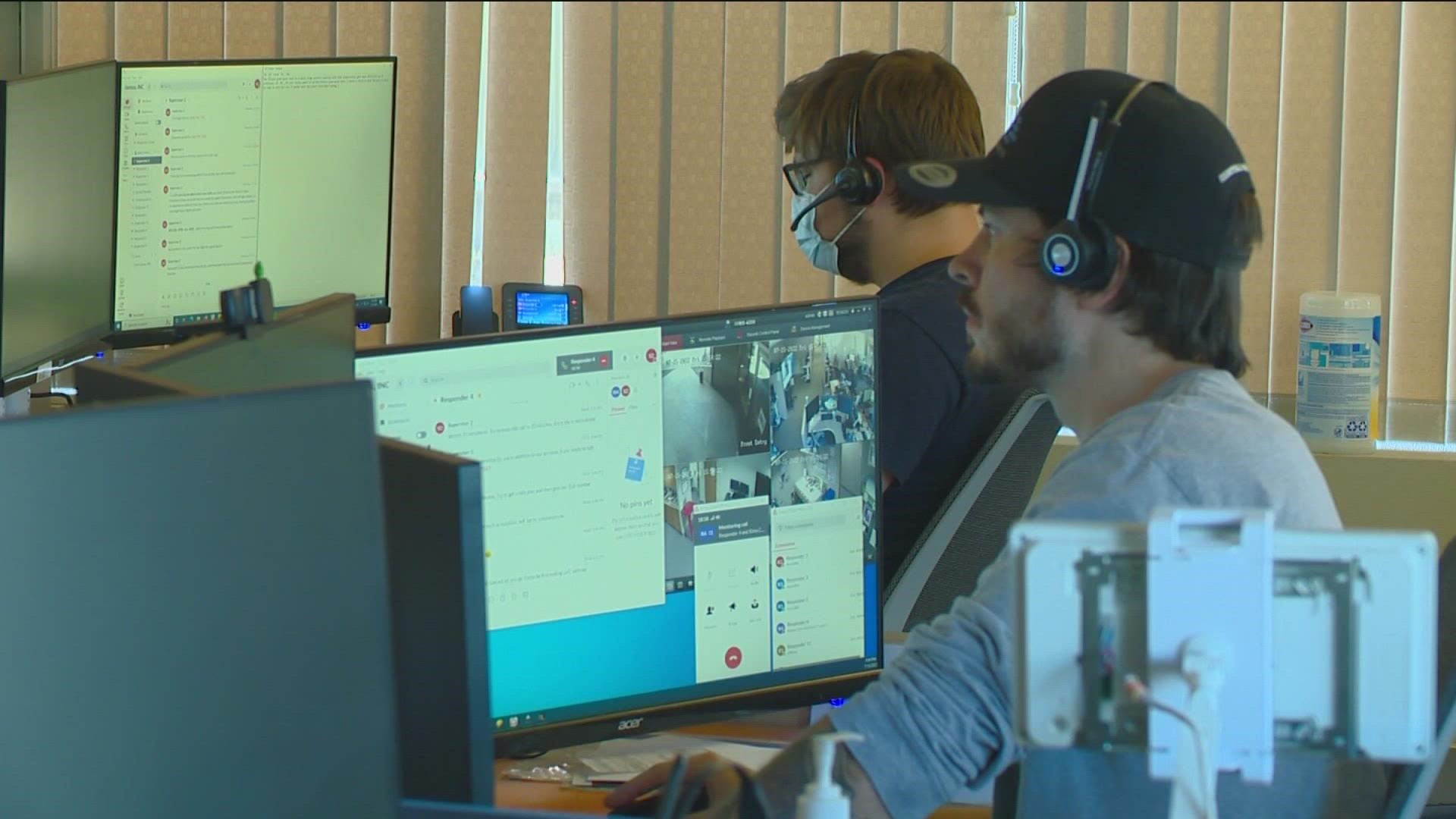BOISE, Idaho — Helping others is a priority in Christian Garcia’s life.
“I had served in the military and just helping people, being a part of something bigger than yourself, was important to me,” Garcia said.
Garcia works at the Idaho Crisis & Suicide Hotline as a crisis responder. He started as a volunteer but said he transitioned into a paid position when the hotline began hiring more crisis responders to keep up with the increasing number of calls.
The reason for the increase – the implementation of the nationwide suicide prevention and mental health phone number 988. Garcia said the new line is easy to remember, which makes it more accessible to people seeking mental health help.
“When you're in a mental health crisis, you're not really able to think very clearly,” Garcia said. “So, that three-number phone number is definitely a benefit to everyone.”
Lee Flinn, Idaho Crisis & Suicide Hotline director, said they are trying to stay ahead of the curve. Since January, crisis responders have answered more than 15,000 calls and texts.
That’s a 4,000 increase from just one year ago, according to Flinn.
Since 988, the Idaho crisis responders are working to follow up with callers more frequently. Callers are now scheduling times to speak with a responder again, whether that be the next day, the next week or in a month.
Garcia said taking that extra step can really make a difference.
“The evidence shows that they reduce the likelihood of a suicide attempt to people that have been thinking about suicide is just that reach out, that ‘hey, how are you doing today,’” Garcia said.
Right now, the Idaho Crisis & Suicide Hotline has 50 volunteer crisis responders and 42 paid employees. Flinn said they are looking to hire 10 more people – two supervisors and eight crisis responders.
She said one concern with 988 is funding. Although the hotline was established by federal law, it is up to individual states to fund the hotline long term.
Some states are not able to respond to the high volume of calls because they do not have financial support from the local government, Flinn said.
That is not the case in Idaho. Flinn said the government put $4.4 million toward 988; $2.5 million went directly to the Idaho Crisis & Suicide Hotline.
“The funding and the investment from the state helps us have staff, it helps literally pay for the phones,” Flinn said. “Those are our biggest cost drivers.”
As far as funding goes, Flinn is up to the 2023 Idaho Legislature to decide how much is going toward 988.
Garcia said he hopes Idaho politicians continue investing in mental health.
“We're a rural state and a kind of self-independent mentality, where you don't ask for help, you take it on your own,” Garcia said, “I think that the services that we provide are just crucial for a lot of people.”
Watch more Local News:
See the latest news from around the Treasure Valley and the Gem State in our YouTube playlist:

